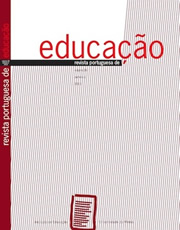Sociomoral identity, social models and socialization of values
DOI:
https://doi.org/10.21814/rpe.2982Abstract
The paper introduces a psychosocial study about values, attitudes and behaviours of college students. A sample of 860 participants answered a questionnaire whose purposes where, among others, to clarify the impact of formal and informal educational experiences on social identity in university students. The research methodology will be presented and part of the results shown and discussed. Reported data are centred at the non-behavioural sphere of morality, namely the representation of good and excellence and the beliefs about self and worldviews. Students where inquired about their social models of excellence, i.e., people who excel and which the subject considers exemplar, due to his/her words and behaviours. Content analyses made it possible to catalogue the characteristics considered as criteria to judge a person as a model to be followed. This leads to the inference of student’s social values. Results show that the patterns of sociomoral excellence are uninfluenced by the college experience. Other socialization processes, particularly those evolving at the family sphere, such as the educational style of parents, are much more influential upon social and moral beliefs and values of the student. Gender is another factor revealing significant effects.
Keywords
Identity; Morality; Social and moral values; University students
Downloads
Downloads
How to Cite
Issue
Section
License
1. The authors preserve their authorship and grant the Portuguese Journal of Education the right to the first publication. The work is licensed under Creative Commons Attribution License that allows sharing the work with the acknowledgment of initial authorship and publication in this Journal.
2. The authors have the right to take additional contracts separately, for non-exclusive distribution of the published version of their work (e.g. to deposit in an institutional repository or as a book chapter), acknowledging the initial authorship and publication in this Journal.
3. The authors have the permission and are stimulated to post their work online (e.g. in an institutional repository or on their personal website). They can do this at any phase of the editorial process, as it may generate productive changes, as well as increase impact and article citation (see The Open Citation Project).
The work is licensed under Attribution-ShareAlike 4.0 International (CC BY-SA 4.0)




















